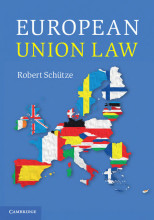Overzicht studiestof European Union Law - Free Movement of Goods - Regulatory Barriers
7 important questions on Overzicht studiestof European Union Law - Free Movement of Goods - Regulatory Barriers
Art. 34 covers MEEQR. Name the four periods can be identified that mark the evolution of the concept of MEEQRS.
1. Dassonville: Trading Rules
2. Cassis: Product requirements
3. Keck: Selling Arrangements (and Familliappress)
4. Italian Trailers: Consumer Restrictions (and Mickelsson).
What does the Court decided in Cassis de Dijon regarding product requirements?
The Court also created justifications, which is called 'Imperative Requirements'
What does the Court decided regarding selling arrangements?
1. It applies equally to all traders operating in the market of the Member State
2. It affects in the same way in law and in fact the marketing of domestic and imported goods.
3. It does not restrict access of imported products in the market.
- Higher grades + faster learning
- Never study anything twice
- 100% sure, 100% understanding
How can we distinguish between selling arrangements and product requirements?
Is a prohibition on the use of a product constituted an MEEQR?
Does consumer restrictions needs to be discriminative in effect to be constituted as an MEEQR?
What is the imperative requirement stated in Cassis?
It is recognized as being necessary in order to satisfy mandatory requirements relating in particular to the effectiveness of fiscal supervision, protection of public healt, fairness of commercial transactions and the defence of the consumer.
The question on the page originate from the summary of the following study material:
- A unique study and practice tool
- Never study anything twice again
- Get the grades you hope for
- 100% sure, 100% understanding
































